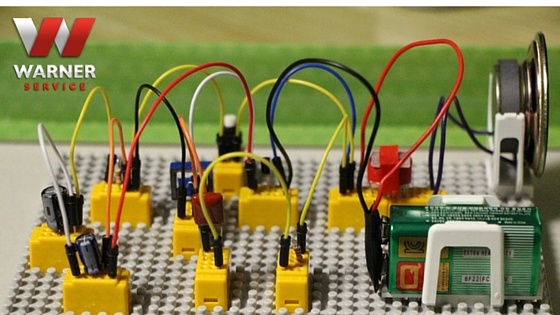
Most people don’t pay attention to their HVAC units until the air conditioner is blowing hot air, or something smells like dead fish. We can answer both of those calls, but dealing with a circuit breaker malfunction is critical because your call can go to the fire department instead of us. To help you better understand your circuit breaker, have another casual conversation with Warner Service:
First of all, what does a circuit breaker do?
A circuit breaker is an automatically operated electrical switch that’s designed to protect an electrical circuit from damage caused by overuse or short circuit. Its basic job is to stop the current flow if it senses something wrong.
Are there different types of circuit breakers?
There sure are. There’s a ground-fault and an arc-fault circuit interrupter, which do the same job as a traditional circuit breaker.
So, what is a ground-fault circuit interrupter?
A ground-fault circuit interrupter, or GFCI, is also called a residual current device, or RCD. It shuts off an electric power circuit when it detects that an electrical current is flowing along an unintended path, such as through water or a person. It’s designed to reduce the risk of electric shock and prevent fires between live wires and a metal conduit. They’re required in kitchens, bathrooms, unfinished basements, garages, outdoors, and anywhere near a sink.
And what is an arc-fault circuit interrupter?
An arc-fault circuit interrupter, or AFCI, is a duplex receptacle or circuit breaker designed to help prevent fires by detecting an unintended electrical arc and disconnecting the power before the unintended arc starts an electrical fire. They’re required on all branch circuits supplying outlets or devices installed in living rooms, dining rooms, kitchens, parlors, libraries, bedrooms, sunrooms, recreation rooms, closets, hallways, and laundry rooms.
Can I have both? It’ll probably save me money.
It definitely will save a few bucks, and luckily The 2014 National Electrical Code, which Maryland implemented on January 1, 2015, requires both Arc Fault and Ground Fault protection on kitchen and laundry circuits. Typically, homeowners would have to combine these two devices by pairing an ACFI circuit breaker with a GFCI receptacle.
However, most electric companies today offer DCFI (dual function circuit interrupter), which seamlessly pairs AFCI protection guard against damage or fires, and GFCI, which prevents electrical shocks by detecting a current that’s “leaking.” You get the best of both worlds.
Can a circuit breaker go bad?
Circuit breakers get a bad rep for being unreliable, but most circuit breakers won’t “go bad” unless a connection that’s making heat throws it off. It also might be “tripping” from someone resetting it wrong. Just reset the circuit breaker the proper way, and all should be well with the electrical world.
Thanks for all of your help, Warner Service. Can you take a look at my circuit breaker?
Of course we can help! We’ve helped other homeowners in Maryland, West Virginia and Southern Pennsylvania with all of their HVAC and plumbing needs. Just contact us by clicking below.


